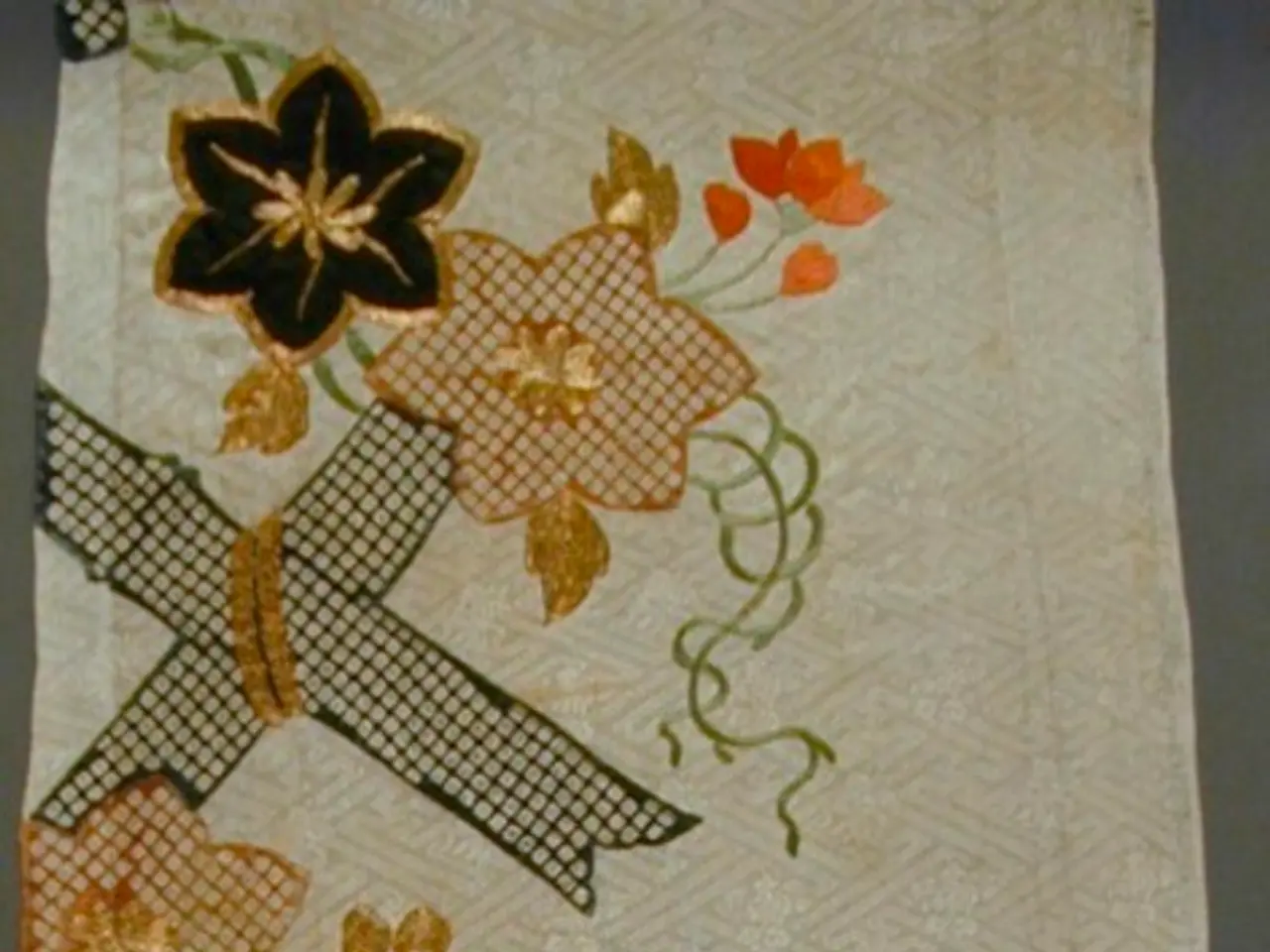"Designer Chooses Sustainability Through Upcycling Innovation"
Silvia Hlinik, a designer based in Stuttgart-Feuerbach, is making waves in the German fashion industry with her commitment to sustainable outdoor fashion. Hlinik, the founder of Manufaktur Manuc, relies on design and craft markets in the Stuttgart region for marketing her unique creations.
One of Hlinik's standout products is a travel towel made of organic cotton, which dries quickly and does not release microplastics. This eco-friendly towel is just one example of her dedication to sustainability.
However, Hlinik faces several challenges in implementing the upcycling method for her outdoor fashion line.
Sourcing Suitable Materials
Finding enough high-quality, durable second-hand or discarded outdoor gear and textiles that can be effectively repurposed is often difficult. This limits the range and quantity of products Hlinik can create.
Maintaining Functionality and Performance
Outdoor fashion demands high standards for durability, weather resistance, and comfort. Ensuring that upcycled materials meet these performance requirements can be challenging, as reused fabrics may have wear or damage.
Consumer Perception and Acceptance
Convincing customers to embrace upcycled fashion, particularly for outdoor use, requires overcoming skepticism about quality and aesthetics. Some consumers may prefer new materials over repurposed ones.
Production Scalability
Upcycling often involves more labor-intensive, custom processes compared to mass production with new materials. Scaling up production sustainably while maintaining quality and design consistency is a complex task.
Cost Management
Upcycling can be more expensive due to sourcing efforts, sorting, cleaning, and labor. Keeping products affordable yet profitable is a financial challenge.
Regulatory and Certification Hurdles
Meeting environmental and safety standards for outdoor gear can be complicated when using varied recycled materials.
Despite these challenges, Hlinik remains undeterred. She sources materials from other labels and old clothes for her upcycling projects, transforming them into stylish and functional outdoor accessories.
Hlinik's partner, Jakob Engel, supports her in sales, the online shop, orders, and invoices. If a sample proves successful, she reproduces the product when similar materials are available.
Hlinik's concept of sustainable outdoor fashion is one that she wishes for others to imitate. She uses sustainable materials like organic cotton and wood fiber, and employs the upcycling method to give discarded items new value.
Her label, Manuc, offers accessories for everyday life, leisure, and adventure. Hlinik has been self-employed since 2015, after completing her apprenticeship and working for various tailoring shops and fashion labels.
Hlinik's upcycling process involves cutting fabrics with a rotary cutter, testing different variations, and sewing sample pieces together. She hopes to grow her business slowly and sustainably, but her current business model has limits due to her part-time status.
Hlinik also has a side business in custom and alteration tailoring. She believes that upcycling should play a much larger role in a sustainable economy and hopes for an adjustment of the German Textile Labeling Act regarding upcycling, as it currently requires listing all materials used in offered textile products, which can be challenging with upcycling.
Despite the challenges, Hlinik's commitment to sustainable outdoor fashion is inspiring. Her work exemplifies the possibilities of upcycling and the potential for a more sustainable fashion industry in Germany.
- Silvia Hlinik's label, Manuc, isn't limited to sustainable outdoor fashion; it extends to accessories for everyday life, leisure, and adventure, navigating the realm of environmental-science and lifestyle.
- In the realm of fashion-and-beauty and sustainable-living, Hlinik's mission is to create a ripple effect, inspiring others to adopt the principles of sustainable fashion, particularly in outdoor clothing.
- Home-and-garden enthusiasts might appreciate Hlinik's dedication to sustainable living, as she transforms discarded items into stylish and functional outdoor accessories, resulting in a harmonious balance between design and environmental consciousness.
- Silvia Hlinik's commitment to sustainability extends beyond her fashion line, as she advocates for the adoption of upcycling within the German Textile Labeling Act, envisioning a future where such practices are comprehensively incorporated into the fashion and textile industry, fostering a more eco-friendly lifestyle.




